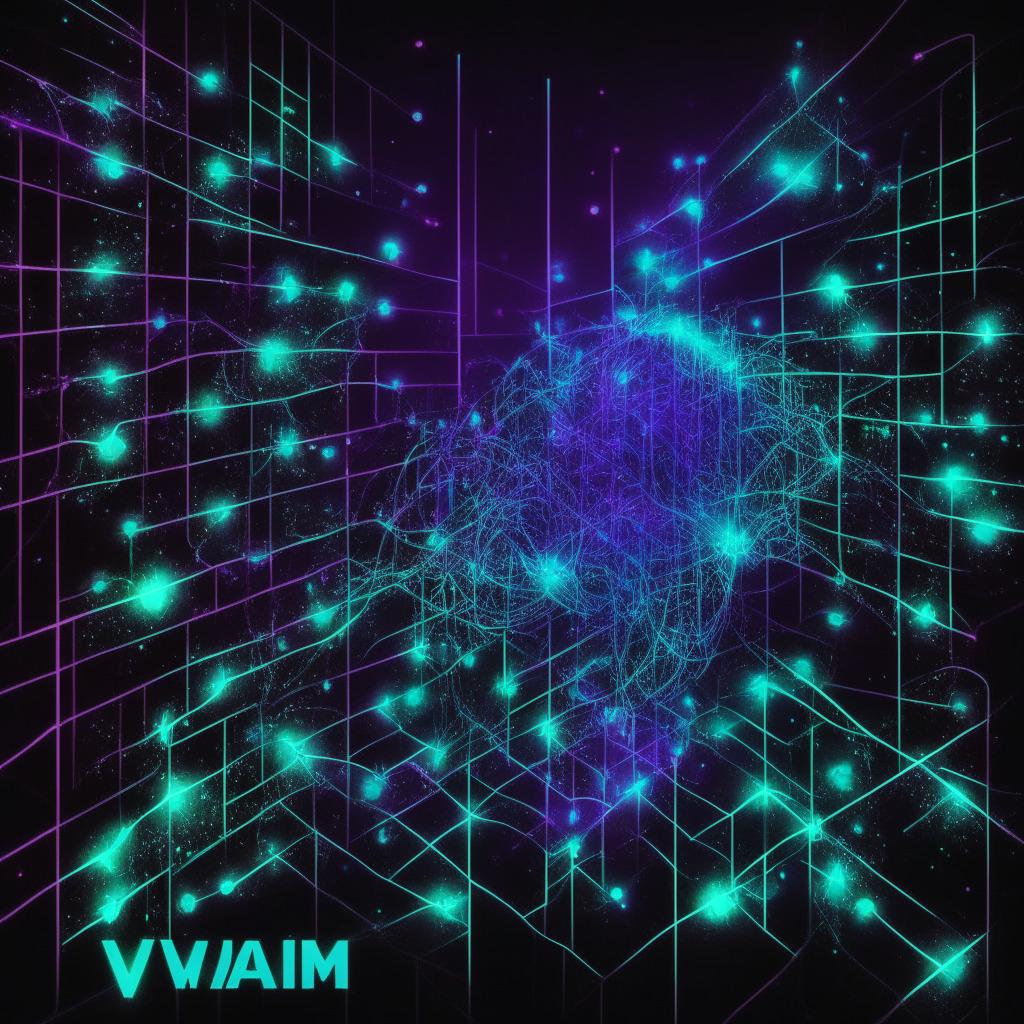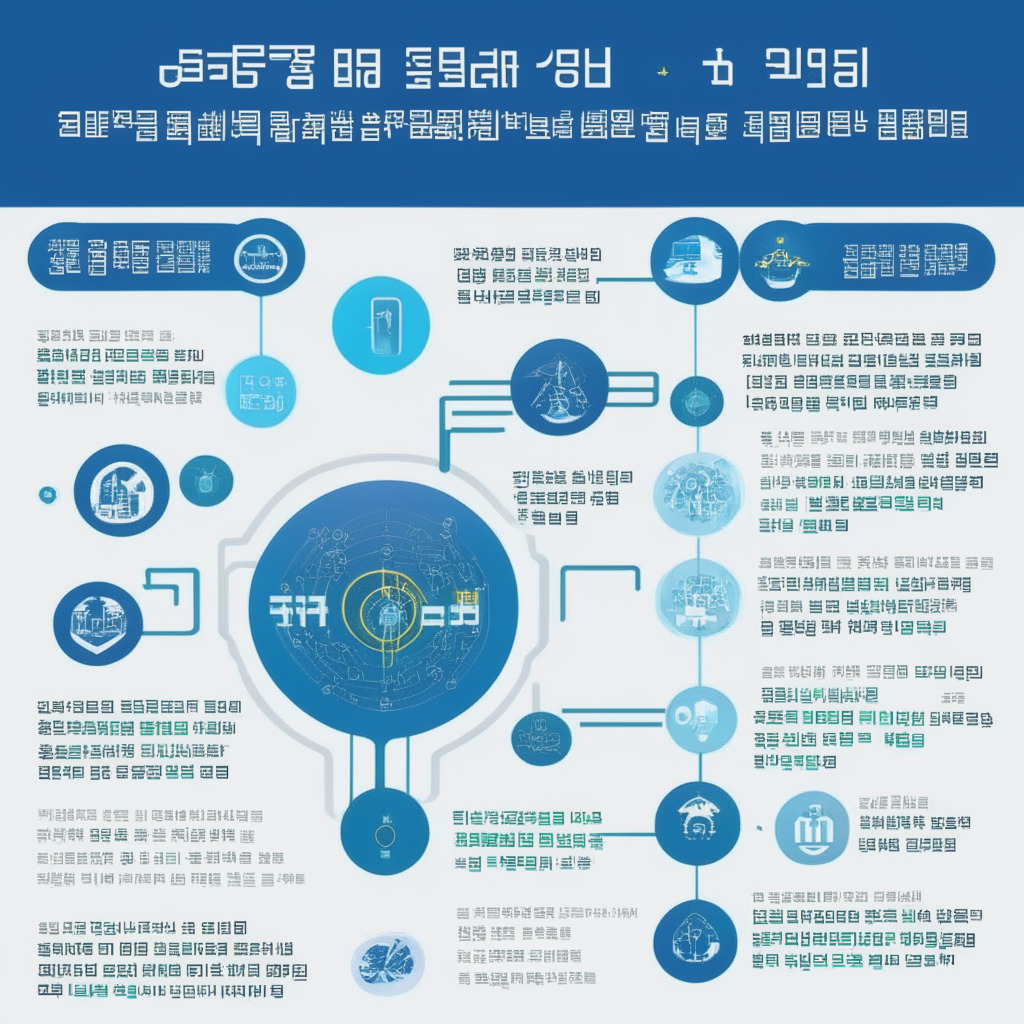“Cronos Labs is looking for eight innovative crypto startups to join their $100 million accelerator program, aiming to marry artificial intelligence (AI) with crypto. Blockchain developers are leveraging the growing interest in AI to accelerate the growth of the digital economy, projecting AI and cryptocurrency as the next critical turning point.”
Search Results for: Amazon
Navigating the Ethical Minefield of AI: Polite Bots, Deepfakes, and Job Security
“The proliferation of AI comes with both promises and perils. Increased AI interaction raises questions about our behavior towards technology and its impact on our human interactions. As AI’s capabilities expand, from solving CAPTCHAs faster than humans to possible misuse with deepfake technology, skepticism and scrutiny are crucial for a safe journey into an AI-powered future.”
Nvidia’s AI Dominance: Potential Boom or Over-Dependence Risk Amidst Crypto Scams?
“The sharp rise in Nvidia’s share prices can be attributed to increasing demand for AI chips. The company separates itself from competitors like Intel and Micron Technologies by focusing on research and development in AI technology. However, as this sector continues to grow, scams target consumers of this technology, underscoring the need for stronger regulations and safety protocols.”
Stellar Joins Bytecode Alliance: A Shift from EVM to Wasm in Blockchain Technology
“Stellar, a globally recognized payments network, has joined the Bytecode Alliance, with a mission to advance the development of WebAssembly (Wasm). Wasm, initially used for browser applications, offers unique resiliency, making it an attractive alternative to Ethereum’s Virtual Machine (EVM) for executing smart contracts. Ultimately, Stellar’s goal is to impact Wasm development standards to benefit the broader Blockchain community.”
Navigating Blockchain: Innovations, Challenges, and the Intriguing Future of Cryptocurrency
“A telling report by Glassnode indicates that long-term crypto holders are showing tenacity, with Coinbase and Binance creating waves in the sector. Coinbase launched its Ethereum layer-2 blockchain, whereas Binance became the first fully licensed crypto exchange in El Salvador.”
NFTs and Art Collecting: Challenging the Conventional Paradigm with Mystery Artists
“Art collecting sees a shift with NFTs disrupting conventional paradigms and putting emphasis solely on art, not artists. Through blockchain technology, tokenized art is promoting unique speculative tendencies among collectors. Companies like Amazon Prime are also marking their entry into the NFT realm.”
Exploring China’s Crypto Leap: Minsheng Bank’s Digital Yuan Initiative with JD.com and the Risks Involved
China’s Minsheng Bank, in alliance with e-commerce giant JD.com, is launching a digital yuan-based payment service. This enables Minsheng customers in the CBDC pilot zone to use digital yuan tokens for platform purchases. Minsheng differentiates as the first Chinese firm predominantly owned by private sector interests to support the nation’s digital yuan pilot.
Demystifying AI on Blockchain: A Pathway to Transparent and Trustworthy Tech Adoption
“The global rise of AI is impeded by transparency and trust issues, which could potentially be resolved by applying decentralized computation via blockchain technology. However, most blockchains lack sufficient infrastructure to support AI models as they demand substantial computational resources and data sets.”
Alibaba’s Adoption of Meta’s AI Model Llama: Progressive Leap or Strategic Misstep?
“Alibaba, the first Chinese company to use Meta’s AI model Llama, signals a shift to zero-cost development programs. It raises questions about ties between China and Meta, and highlights complexities in the evolving landscape of AI adoption and open-source model integration. The role of such technologies in shaping our world remains to be seen.”
Unveiling the Pros and Cons: SEC Scrutiny, Bitcoin as a Commodity and the Future of Crypto Regulation
The SEC’s regulatory scrutiny towards crypto is seen by some as strengthening Bitcoin’s market position. Classification of Bitcoin as a commodity rather than a security is due to its decentralised structure, eliminating capital collection for future returns. Despite its commodity classification, Bitcoin can feature in contracts resembling securities. This regulatory landscape highlights the need for careful navigation amid increased crypto regulation.
AI Safety: Industry Giants Pledge, Challenges Lie Ahead, Future Perspectives Unfold
“Major artificial intelligence firms, including Google, Microsoft, and OpenAI have pledged towards creating a future where AI is secure, transparent, and safe for users. This commitment encompasses pre-release security testing, investing in cybersecurity, establishing threat safeguards, enabling third-party vulnerability reporting, and navigating global regulatory frameworks.”
Predictions Versus Reality: The Unforeseen Surge of Crypto Amidst Adverse Predictions
Despite predictions of a fall in crypto prices in 2022 due to macroeconomic factors, the current landscape significantly diverges. Bitcoin’s value ascended impressively this year, buoyed by an influx of institutional capital. Liquidity easing in bond markets could potentially benefit crypto, and factors including attractive interest rates, a booming equity market, and regulatory advancements predict a bullish future for the crypto market.
Rise of Internet Computers: Eluding Centralization and AWS-like Services or Trading Security?
“Dfinity is developing a system called the Internet Computer, aiming to shift the foundation of the blockchain realm. They plan to remove centralized systems and replace them with ‘canister smart contracts’, providing a decentralized alternative to services like Amazon Web Services. However, these smart contracts can pose serious risks if flawed.”
Revolutionizing Transactions: PayPal, Stripe, Square, and the Cryptocurrency Wave
“Payment gateways like PayPal, Stripe, and Square are embracing cryptocurrencies, facilitating faster transactions and offering crypto support. However, the need for proficiency in cryptocurrency handling and sharing of financial data with third-party platforms may discourage potential users.”
Navigating Turbulence: Filecoin’s Journey Amid Crypto Market Volatility and Adoption Woes
Filecoin, a blockchain storage network, despite market turbulence, saw its storage utilization rate surpass 7%. However, it faced a 40.7% decline in protocol revenue this quarter, largely due to the falling value of FIL tokens and market volatility. Filecoin’s move to release the virtual machine (FVM) shows promise in navigating these challenges.
Blockchain and Data Storage Dilemma: The Triumph and Trial in Powering the Digital Revolution
“The continual growth of data has increased demand for effective storage solutions. Blockchain technology offers decentralized, secure, and scalable solutions. Experts propose collaboration and leveraging decentralized networks to tackle this issue. Concerns exist in integrating with pre-existing systems, however, strategies including data sharding and Layer-2 solutions may effectively expand storage capacity.”
Crypto Market Surprise: Filecoin and Storj Outperform Bitcoin and Ether Amid Market Uncertainty
“While Bitcoin and Ether experienced dips, crypto storage tokens like Storj and Filecoin showed impressive performance, with gains of 15% and 12% respectively. Despite market uncertainties, Solana’s SOL also demonstrated a favorable rise. Nonetheless, broader landscape reflected a 1.3% decrease over the week.”
Unpredictable Ascent of Storj (STORJ): A Dynamic Change in the Cryptocurrency Landscape
“In under 48 hours, storage token Storj managed to inflate its market value twofold, soaring by 43% and reaching a peak of $0.58. It’s noted that Storj’s rally potentially correlates with increased trading volumes on South Korea’s largest crypto exchange, Upbit. The story of Storj demonstrates the unpredictable, high-stakes nature of crypto markets.”
Potential Crypto Calamity: Unmasking Huobi’s Near-Miss Data Breach and Its Implications
Huobi, a major crypto exchange, recently danced dangerously close to a potential disaster due to a massive vulnerability that exposed user assets for nearly two years. The breach was discovered by researcher Aaron Phillips and could have resulted in the largest crypto theft in history if exploited.
Hive Blockchain’s Bold Move: Shifting from Cryptomining to AI Data Center Services
Hive Blockchain, a major Bitcoin mining farm, recently announced its ambition to extend customer access to its data centers, offering enhanced privacy for training large AI language models – distinctly setting it apart from rivals such as OpenAI’s ChatGPT. The company’s shift towards GPU rentals for AI training questions the traditional understanding of mining operations and its long-term viability.
Hive Blockchain: Pioneering the Move from Crypto Mining to AI with Promises of Superior Privacy
“Hive Blockchain aims to leverage the intersection of big data, privacy, and cryptocurrency. Declaring an intent to facilitate AI training within its data centers, Hive differentiates itself with promises of superior data privacy. The company’s strategic shift signifies a gradual transition of mining enterprises towards the booming AI sector.”
GPU Shortage as a Catalyst for Web3: How Decentralized Infrastructure Networks Benefit AI Startups
The GPU shortage could accelerate the adoption of Web3 by mainstream thanks to decentralized physical infrastructure networks (DePIN). Protocols like Akash, enabling GPU leasing to AI start-ups, and Arweave, offering permanent data storage, could help alleviate resource issues. DePIN could provide inexpensive, reliable infrastructure for startups, shielding them from AI threats and offering advantages over Web2.
EU Crypto Regulations and Market Innovations: Balancing Growth and Compliance
The EU proposes “prohibitive” rules to keep unbacked crypto out of the traditional financial system, while Fireblocks expands support for major cloud providers and OKX launches Nitro Spreads feature for OTC institutional liquid market. Digital asset investments surge, but upcoming regulations may impact growth and innovation.
Expanding Cryptocurrency Custody: Fireblocks Partners with Cloud Giants, Security Concerns Linger
Cryptocurrency custody technology provider Fireblocks has expanded its support to cloud service providers including Amazon Web Services, Google Cloud Platform, Alibaba Cloud, Thales, and Securosus, aiming to cater to banks using on-premise and cloud-based IT infrastructures.
Crypto Ransom in Retail: Exploring Bomb Threat Scams and Blockchain Reputation
US retailers like Kroger, Target, Walmart, and Amazon’s Whole Foods Market have faced a wave of bomb threats from scammers demanding ransoms in Bitcoin, gift cards or money. The extortion attempts, which reportedly target each store only once, raise concerns about the reputation of cryptocurrencies and the potential skepticism around the technology’s safety and legitimacy, despite its widespread legitimate use.
South Korea Travel Ban & Crypto Fraud: How It Affects the Blockchain Industry
South Korean prosecutors enforce a travel ban on officials from Haru Investment, Delio, and B&S Holdings amid fraud investigation, while US law enforcement tackles bomb threats demanding $5,000 in bitcoin. Meanwhile, Gemini permits withdrawals to Voyager Digital bankruptcy victims, and Binance reverses plans to delist privacy coins in Europe.
South Korean Giant KT’s $5.3B AI Ambition: A Game Changer or Overreach? Pros, Cons, and Conflicts
South Korean mobile giant KT pledges to invest $5.3 billion in AI research and development over the next five years to become an industry leader. With plans in AI-driven customer service, healthcare, education, logistics, and robotics, KT faces tough competition from global tech giants like Amazon, Microsoft, Adobe, and Zoom in this highly competitive market.
Crypto Miners Venturing into AI and Cloud Computing: Opportunities and Challenges Ahead
Crypto miner Applied Digital ventures into AI and cloud computing, signing a deal to host AI cloud computing loads in its data centers, potentially earning $460 million over 36 months. This move reflects an increasing trend of crypto miners seeking alternative revenue streams amid competitive market conditions.
The Impact of NLP and AI on Human-Machine Interaction: Opportunities and Challenges Ahead
The rapid advancements in natural language processing (NLP) and artificial intelligence (AI) have transformed interactions between humans and machines, driving applications in customer service, language translation, and content generation. Despite challenges in data acquisition, professional expertise, and workflow integration, AI continues to permeate various industries, reshaping the digital landscape.
Ripple’s Singapore Milestone: Growing Influence and Crypto Regulation Balancing Act
Ripple received in-principle approval for the Major Payments Institution License in Singapore, allowing it to offer regulated digital payment token products and services. This move expands the use of Ripple’s On-Demand Liquidity service and reinforces its commitment to engaging with regulators worldwide.
The Future of Purpose-Bound Money: Pros, Cons, and Interoperability Challenges
The Monetary Authority of Singapore is researching central bank digital currencies (CBDCs) and their use cases. A recent white paper explores the potential of purpose-bound money (PBM) and its components: a wrapper and a store of value. PBMs offer privacy and enable both public and private sectors to utilize digital currencies, highlighting the increasing potential and demand for digital currency options.
Singapore’s MAS Proposes Digital Money Standards: Exploring Pros, Cons, and Conflicts
The Monetary Authority of Singapore (MAS), in collaboration with the IMF and others, has proposed standards for using digital money on distributed ledgers, including central bank digital currencies (CBDCs) and tokenized bank deposits. The protocol addresses programmability, balancing innovation, and regulation to ensure digital money serves as a medium of exchange without compromising financial stability and user experience.































